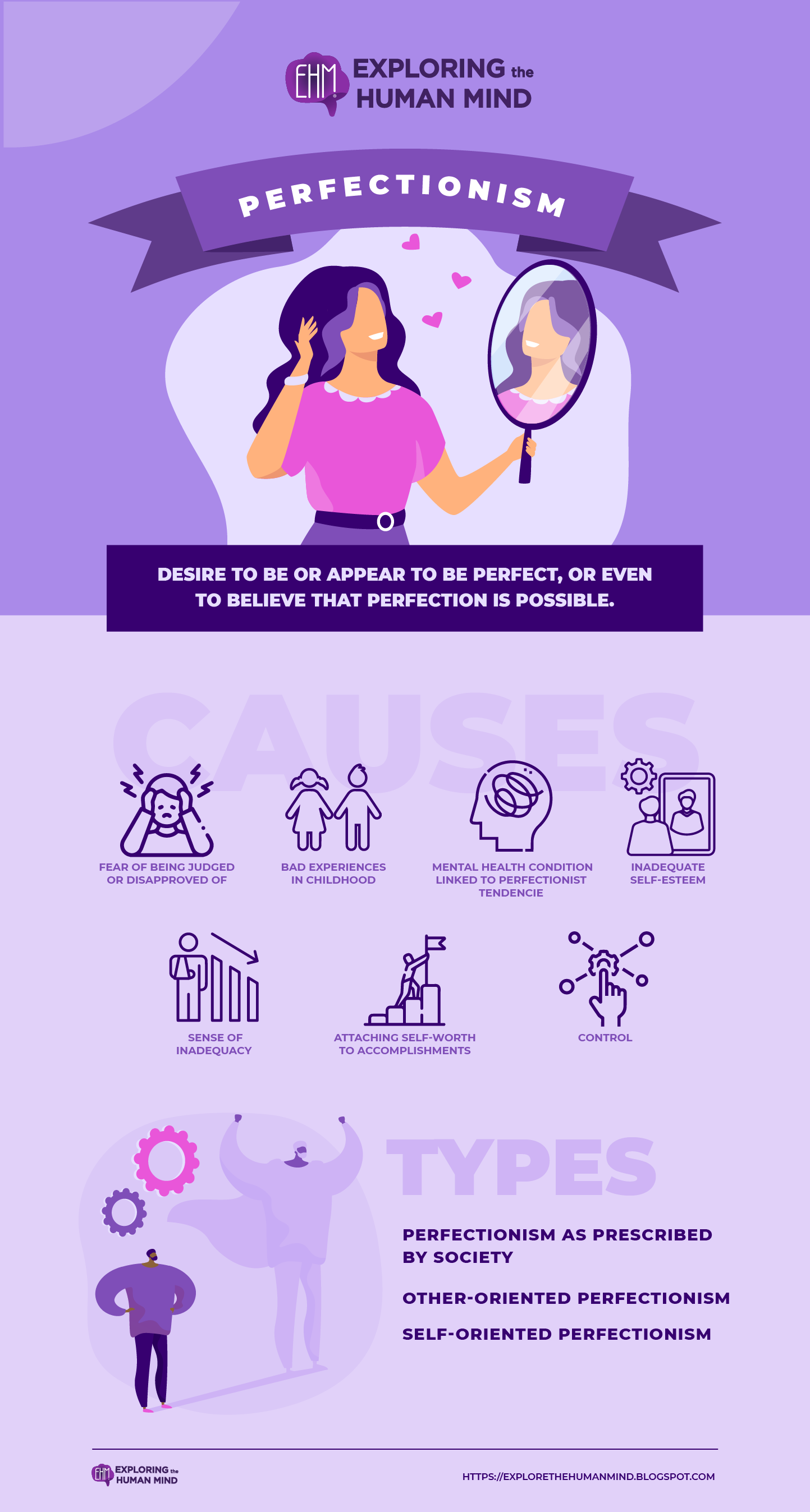Perfectionism
Striving to be your best is not the same as perfectionism. Perfection is not synonymous with achievement and growth.
Because perfectionists demand perfection and will accept nothing less than flawlessness, this can manifest as self-criticism and attempts to control situations and people.
Signs of Perfectionism
If you're wondering if you're a perfectionist, chances are you are—at least to some extent. You may also have an interest in being a perfectionist due to the positive connotations of the word "perfect."
Perfectionists are similar to high achievers, but there are some key differences. Here, we discuss the differences and reveal ten telltale signs of a perfectionist, which you may recognise in yourself or others.
Causes
A person's chances of having a perfectionist personality can be influenced by a variety of factors. The following are some of the primary causes of perfectionism:
- Fear of being judged or disapproved of by others
- Experiences in childhood, such as having parents with unrealistically high expectations
- Possessing a mental health condition linked to perfectionist tendencies, such as obsessive-compulsive disorder (OCD)
- Inadequate self-esteem
- a sense of inadequacy
- Control is required
- Attaching self-worth to accomplishments
Perfectionism can also be influenced by societal and cultural expectations.
Healthy perfectionism can motivate people to do their best, but unhealthy perfectionism can lead to stress, anxiety, low self-esteem, and other problems that negatively impact their quality of life. Perfectionists are frequently critical, fear-driven, have unrealistic expectations, fear failure, and are defensive when confronted with criticism.
Don't be discouraged if you recognise some of these perfectionist characteristics in yourself. Recognising that a change may be required is a critical first step. Once you recognise how these tendencies may be negatively affecting you, you can begin working towards a healthier approach that will still allow you to achieve your goals with less stress and negativity.

vectors by Freepick; graphic design by Vadot
Types
The three types of perfectionism are:
- Perfectionism as prescribed by society: Involves high standards and social pressure to succeed. This personality type contributes to low self-esteem and anxiety.
- Other-oriented perfectionism refers to having high expectations of others. This personality type can contribute to conflict and relationship issues.
- Self-oriented perfectionism: A more adaptable form of perfectionism distinguished by high motivation, resourcefulness, and positive emotions.
Reference:
Types of Perfectionism. (2009, September 15). Perfectionism. Goodtherapy.org. https://www.goodtherapy.org/learn-about-therapy/issues/perfectionism#:~:text=Perfectionism%20is%20often%20defined%20as,describe%20or%20justify%20perfectionistic%20behavior.
10 Telltale Signs You May Be a Perfectionist. (2023). Verywell Mind. https://www.verywellmind.com/signs-you-may-be-a-perfectionist-3145233






Comments
Post a Comment